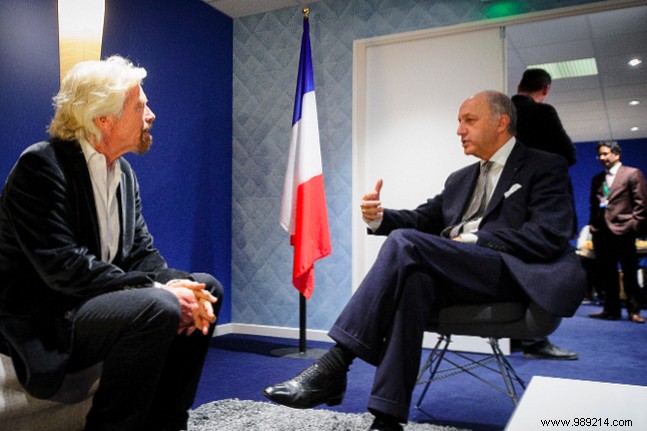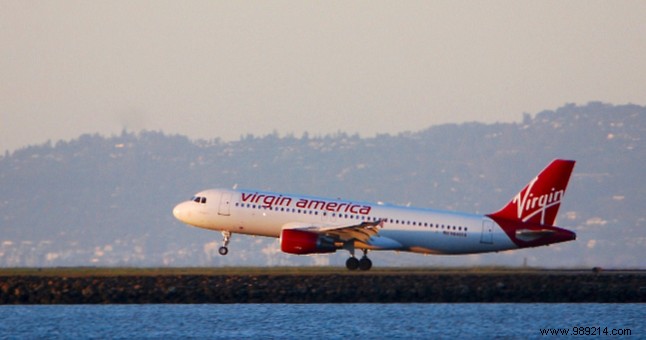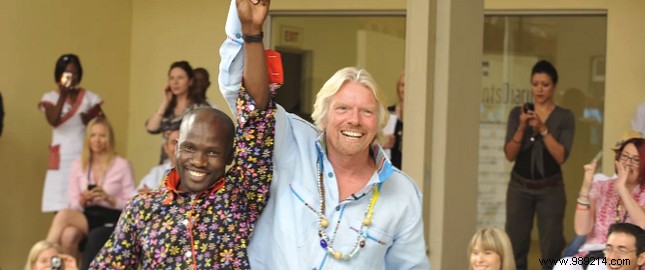At the age of 66, Sir Richard Branson has started over 500 different companies and amassed a fortune of $5 billion.
When it comes to imagining a truly "successful" entrepreneur then, Branson is often the poster child. And luckily for us, he's not media shy either.
We've reviewed many books, articles, and interviews with Branson, to bring you nine lessons that have contributed to the tycoon's success. These lessons are part of the foundational advice Branson provides to entrepreneurs just starting out or looking to scale their businesses.
If he is on his own entrepreneurial journey, ignore these lessons at his own peril.
In 1968, at the age of 16, Branson dropped out of school to begin his first adventure, Student magazine. In striving to sell advertising space, he certainly found his youth a challenge, but age was never a barrier to success. In fact, being the kind of person he was aiming for, his magazine allowed him to create a publication that really resonated with his audience.
But even in these last few years, Branson refuses to see his age as a limit. Approaching 70, he still lives the active life, like kite surfing at his home on Necker Island. And not too long ago we found the businessman trying to conduct death-defying hot-air balloon expeditions.
In his book Bold:How to Go Big, Create Wealth, and Impact the World , Peter Diamandis and Steven Kotler explain the importance of fun In Branson's business approach:
Take a quick look at his life and you'll see that Branson is having fun almost every second, pursuing only projects that energize him. But this fun approach extends to customers as well.

When Virgin opened its first record store in the 1970s, the goal was to make the experience of buying records. funny . So Branson created a store full of bean bags and free coffee. He wanted a relaxed atmosphere, so people would love to spend time there. The industry thought this was a ridiculous idea. Before long, Virgin Records was one of the world's largest music sellers.
In an interview with Entrepreneur.com, Branson's 31-year-old assistant says:
This careful approach to how he spends his time allowed Branson to focus on the big picture. Meanwhile, the employees of him were sweating the little things ..
This freedom to think big is something Branson has always valued. In his book Losing my virginity , he explains that "Sometimes in life you have to dream big by setting yourself seemingly impossible challenges."
It is this philosophy that saw Branson launch an airline with no relevant experience whatsoever. And it's also what has allowed the tycoon to pioneer hugely daunting long-term industries like renewable energy research (Virgin's Green Fund) and space travel. What's new about the new space race? What's new in the new space race? It's 2015, and space is cool for the first time in decades. What happened after the moon landing? Where did it all go so wrong? Read more (Virgin Galactic).
As he reads more about Branson's life, especially in his own books, he begins to get a sense of the relentless work he does every day. After all, he can't be as successful as Sir Richard Branson without putting in the hours. 5 Tips That Let Me Work 3 Jobs And How You Can Too 5 Tips That Let Me Work 3 Jobs And How You Can Too Simple Secrets to Superhuman Productivity. Let's look at these tips to help you multiply his productivity without sacrificing his personal life. Read more.

But to reiterate an earlier point, Branson isn't just busy. Acting as responsible for numerous companies and expeditions. He's also working smart . In an article published on The star , he says, "The most valuable commodity anyone has is time." That's why Branson often attends business meetings, while most people still eat breakfast. And that's why his former assistant recalls often working until 2 a.m. with Branson, meticulously planning his days and weeks How to Prepare for Your Perfect Day With Free Apps How to Prepare for Your Perfect Day With Free Apps The perfect day is when you feel energized and get through the to-do list with time and energy to spare. We show you the apps that can help you get in the zone. Read More
Branson has never had to wait patiently until all the stars are aligned before taking action. When he launched his magazine, he jumped into journalism without even taking a journalism class (although he is dyslexic). Heck, he started 500 businesses without taking a single business class.
By throwing himself into the deep end and believing in himself, Branson has been able to make risk-taking work so well for him. In the past, he's been forced to remortgage his house, and having to sell Virgin Records to keep Virgin Atlantic afloat brought him to tears.
But without taking these calculated risks, Branson could never have been where he is today.
Speaking of calculated risks, one of Branson's most famous pieces of advice is:"protect the downside." This essentially means minimizing risks before opening yourself up to potential losses.

As explained in Bold He put this advice into practice when he was a teenager and stayed in school until he got £4,000 in advertising. And later, the only way to convince his partners to let him start Virgin Atlantic was to get Boeing to agree to take back the first 747 jet if the business didn't make enough money.
By always protecting the downside, Branson has been able to protect himself, and his brand, from worst case scenarios be confronted.
Before entering a new industry, Branson will always ask himself if that industry needs interruptions. If he does, he will dive in, working tirelessly to offer something completely different from everyone else. This means ignoring the status quo and even admitting that sometimes the customer is not always right. As a disruptor, you they have to set the new benchmarks and set new standards in an industry.
Richard Branson told WEJ:
Virgin Atlantic, which uses the tagline "Flying in the face of the ordinary," was launched to revitalize a stale aviation industry. Their customer service and flight options surpassed anything else on the market. And no one could compete with Virgin airport lounges.

When Virgin took over Northern Rock Bank in the UK, this too was an excuse to do something completely different. Instead of just opening branches, Virgin opened “Virgin Money Lounges” (see above), which offered customers a place to grab free coffee, connect to Wi-Fi and unwind in the center of the city. /P>
When Virgin ignored this lesson, however, things rarely went to plan. Take Virgin Cola, for example. The cola industry was doing well and people were happy with the choice in that industry. Virgin had nothing new to offer, and therefore was never a success.
Of the 500 or so businesses Branson has established, 200 have been "failures." In fact, Branson believes that all entrepreneurs should be comfortable with failure, as it is virtually guaranteed when you constantly challenge yourself. Just Look At All Of Apple's Failures Apple's Biggest Failures And Lessons Learned From Them Apple's Biggest Failures And Lessons Learned From Them No company has a perfect track record... Not even Apple. Read More
Speaking to Forbes, Branson said:
However, each of those failures teaches lessons that you can apply the next time. The challenge is simply to recognize that failure is a necessary part of the journey.
Branson has been known as someone who helps others on both a small and large scale.
On a "smaller" scale, the Virgin brand is built on the premise that happy employees lead to happy customers. Therefore, neither customers nor employees should feel taken for granted.

In fact, Branson said:
On a larger scale, however, Branson believes that “the brands that will thrive in the years to come are the ones with a purpose that goes beyond profit 7 Apps and Websites to Help You Donate Money to Charity 7 Apps and Sites website to help you donate money to charity Give more money to charity and engage more human citizen by using these 7 apps and websites. Read more ". This has led Branson to become one of the most vocal humanitarians of the 21st century.
Virgin's non-profit arm Virgin Unite has incubated several influential organizations. One of these is Elders , "A group of independent global leaders working together for peace and human rights." Another is the Carbon War Room, an NGO working on economically sustainable solutions to climate change. And in 2013, Branson joined Bill Gates' $500 billion philanthropic group, pledging to donate half of his wealth to philanthropic causes.
However, it is not all selfless, as there is a business lesson here. In branson's book Screw business as usual , he argues that companies that treat their employees, customers, and the planet well are the ones most likely to prosper. This is leading us into a new period where larger businesses and purposes will begin to merge.
As with any article like this, the information here is only useful if people like you and I have put it to use.
When he offers lessons like these, Richard Branson brings decades of experience and wisdom to the table. It would be wise to heed his advice..
From genuine concern for his employees to forcing himself to think big, these are valuable lessons that any entrepreneur should try to implement in their own businesses..
Are there any other lessons you've learned from reading and watching videos about Richard Branson?